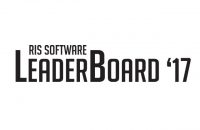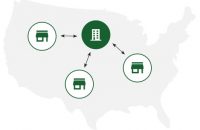Evaluating Retail Solutions: 3 Warning Signs It’s Not a Good Fit
 Enterprise Resource Planning is a big piece of technology to invest in – it’s no wonder that when a retailer has gone through the effort of purchasing and implementing an ERP system, they want to avoid having to reinvest in a new solution later down the road. It can be hard to justify migrating to a new system when you’ve already spent hundreds of thousands of dollars, and that’s why it’s important to think about the long term when you’re deciding on a retail solution to put your faith in.
Enterprise Resource Planning is a big piece of technology to invest in – it’s no wonder that when a retailer has gone through the effort of purchasing and implementing an ERP system, they want to avoid having to reinvest in a new solution later down the road. It can be hard to justify migrating to a new system when you’ve already spent hundreds of thousands of dollars, and that’s why it’s important to think about the long term when you’re deciding on a retail solution to put your faith in.
As you’re investigating the benefits of ERP, it can be easy to assume that all ERP systems will stand to improve your supply chain management. After all, things like a unified system and consistent standards of data are key to making your supply chain operate efficiently and transparently.
Retailers beware: not all ERP systems are ideal for ensuring the long-term health of your supply chain management process. These are the warning signs you should keep an eye out for in any retail software solution that hint at a lack of longevity when it comes to purchasing, ordering, distribution, inventory and warehouse management:
Minimal extended enterprise functionality in crossing organizational boundaries
Most retailers work with a variety of vendors, suppliers, partners and payment processors in a way that works best when there is a clean and open transfer of information across the supply chain. Look for an ERP system that can connect you to your suppliers with a minimal amount of effort on your part – avoid any solutions that:
- Can’t interface with a wide variety of external systems
- Depend on a manual export/import process for incorporating data from outside sources
- Have no native ability to accommodate data from vendors or databases in the product file
- Can’t handle business processes that span multiple organizations
Inflexibility to rapidly changing supply chain needs
The vast majority of ERP solutions designed for mid-sized retailers will have some inherent flexibility. For example, the ability to add new products or adjust ordering quantities easily is something you should expect from any solution. Even niche capabilities like size and color matrixes for the ordering of clothing items are functions you can anticipate any ERP product to have. Where the ERP offerings with true longevity start to differentiate themselves is on the question of customization and ongoing evolution.
Although a standard set of processes for dealing with your supply chain management based on industry best standards is useful and beneficial for many companies, many others have unique processes that provide them with a competitive edge and allow them to function better than they would be using a standardized approach; be wary of ERP solutions that have no way to accommodate that.
Beyond just your initial implementation, you should feel confident that your ERP provider has the capability to offer ongoing adjustments and customizations and to support complex or experimental initiatives for improving your supply chain management. As product assortments becoming increasingly complex to meet growing customer demand for unique experiences and tailored products, retailers are rethinking and expanding on their old systems. They’re also moving to new types of vendor relationships that can vary greatly for each vendor they interact with.
If an ERP solution isn’t equipped to handle these kinds of complications, it can become a roadblock to your supply chain management improvements down the road.
Lack of functionality beyond simple transaction management
For a small retailer, getting by on just the basics is an acceptable situation. For a mid-sized retailer with between ten and a hundred locations, store managers quickly find that “just the basics” can be extremely limiting.
Avoid ERP solutions that don’t have support for things like:
- Automated reordering that takes into account the speed with which a product has sold, and not just whether or not it’s below a certain quantity, when suggesting how many to reorder
- The ability to pull product from other store locations rather than ordering more from the supplier before it’s necessary
- Transparency around the profitability of a potential purchase, including data on landed cost, vendor promotional pricing, and seasonal demand fluctuations
While these capabilities may seem like luxuries, especially to a retailer that has only recently outgrown its smaller operations, the lack of support for them is a red flag. More often than not, going with an ERP solution with only simple functions means that down the road you’ll need to reinvest in your stores’ technology if you have any ambitions of growing operations further and improving your supply chain management process to accommodate that growth.
For Mid-Sized Retailers, ERP Must Scale to Truly Benefit SCM
Small, single-store retail operations can work just fine using simple ERP solutions for simple SCM processes. The mid-sized retailer planning to expand needs to be a little more forward thinking and take more into account than just whether a software solution can handle their current operations. By keeping alert for the above warning signs of ERP that may harm your supply chain management more than it helps, retailers can plan for the future and prevent the worst case scenario of having to completely reinvest in a new, more capable system.
RECENT POSTS
 Magstar Ranked #1 in 5 Top-20 Software Vendor Categories by 2017 RIS News LeaderBoardMagstar Inc has been recognized as a top-20 software [...]
Magstar Ranked #1 in 5 Top-20 Software Vendor Categories by 2017 RIS News LeaderBoardMagstar Inc has been recognized as a top-20 software [...] 7 Signs for Growing Retail Chains to Upgrade ERPThis checklist of common growing pains will help small [...]
7 Signs for Growing Retail Chains to Upgrade ERPThis checklist of common growing pains will help small [...] Why Inventory Precision Will Help You Drive Sales (and How to Achieve It)This article looks at three warning signs that your [...]
Why Inventory Precision Will Help You Drive Sales (and How to Achieve It)This article looks at three warning signs that your [...]